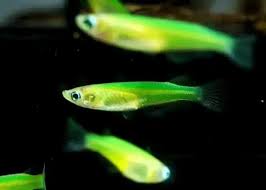Geographical and Soil Characteristics of Gansu Tea
1. The Influence of Gansu’s Climate on Tea Cultivation
Gansu Province, located in northwestern China, is known for its diverse geography and extreme climate variations. Unlike the humid, subtropical regions where most Chinese tea is grown, Gansu’s tea thrives in a semi-arid, high-altitude environment.
- Cool Temperatures: The province experiences long, cold winters and mild summers, with an average annual temperature ranging from 5°C to 15°C. This slow-growing climate allows tea leaves to develop a deeper, more complex flavor.
- High Altitude: Many of Gansu’s tea plantations are found in mountainous areas between 1,500 and 2,500 meters above sea level. The high altitude contributes to higher concentrations of amino acids and polyphenols, enhancing both the taste and health benefits of the tea.
- Low Humidity: Unlike the misty mountains of Fujian or Yunnan, Gansu has a drier atmosphere, reducing the risk of fungal infections and allowing for purer, cleaner tea leaves.
These climatic factors result in a tea that is bold, rich in umami, and naturally sweet, with less bitterness than teas grown in hotter regions.
2. The Unique Mineral Composition of Gansu’s Soil
Gansu’s soil is one of the key factors that make its tea so distinctive. The province’s varied landscape includes loess plateaus, fertile valleys, and mineral-rich riverbanks, each contributing to the unique terroir of Gansu tea.
- Loess Soil: The province is famous for its loess (wind-deposited silt), which is light, porous, and rich in minerals. This type of soil allows tea roots to penetrate deeply, absorbing essential nutrients that enhance the tea’s natural sweetness.
- High Levels of Iron and Magnesium: Gansu’s tea-growing regions contain iron-rich red soil and magnesium-laden earth, which contribute to the tea’s smooth mouthfeel and robust taste.
- Clean, Unpolluted Water Sources: Many of Gansu’s tea farms are irrigated by pristine mountain springs and rivers, such as the Yellow River, which runs through the province. These pure water sources help preserve the tea’s freshness and aroma.
Compared to the volcanic soil of Zhejiang or the clay-rich soil of Yunnan, Gansu’s loess and mineral-rich land give its tea a distinctly crisp, floral, and slightly mineral taste.
Flavor Profile of Fresh Gansu Tea
1. Aroma and Appearance
Gansu tea is visually appealing and aromatic, making it a favorite among tea connoisseurs.
- Leaf Shape: The tea leaves are often long, slender, and slightly twisted, reflecting the careful hand-processing methods used by local farmers.
- Color: The dried leaves have a deep green hue, indicating high chlorophyll content.
- Aroma: Fresh Gansu tea has a complex fragrance, combining floral, grassy, and slightly nutty notes, with a subtle hint of minerals from the soil.
The aroma of Gansu tea is often compared to a mix of Zhejiang’s Longjing tea and Fujian’s Tieguanyin oolong, though it has a crisper, more refreshing character.
2. Taste and Mouthfeel
One of the most distinctive features of Gansu tea is its balanced and refined flavor profile.
- First Sip: The tea has an initial sweetness, followed by a mellow vegetal taste reminiscent of fresh spring leaves.
- Aftertaste: A lingering umami flavor with subtle mineral notes that refresh the palate.
- Overall Texture: Smooth, slightly thick, and very refreshing, making it perfect for both casual tea drinkers and experienced tea lovers.
While Yunnan Pu-erh is earthy and robust, and Anhui’s Keemun black tea is malty and strong, Gansu tea stands out for its crisp, naturally sweet flavor with a floral touch.
Types of Fresh Gansu Tea
1. Gansu Green Tea
The most common tea produced in Gansu is high-quality green tea, known for its fresh, grassy taste and vibrant color.
- Processing: The leaves are quickly pan-fired or sun-dried to prevent oxidation, preserving their bright green color and high antioxidant content.
- Flavor Notes: Mildly nutty, with a refreshing vegetal taste and a smooth finish.
- Best Brewing Method: Brew at 75–85°C for a light, aromatic cup with no bitterness.
Gansu green tea is often compared to Longjing (Dragon Well) tea but with a slightly more mineral and umami-forward taste.
2. Gansu Yellow Tea
Though less common, Gansu also produces a rare and unique yellow tea, similar to Hunan’s Junshan Yinzhen.
- Processing: The tea undergoes a slight oxidation process, giving it a softer, rounder taste compared to green tea.
- Flavor Notes: Lightly toasted, with hints of honey and floral sweetness.
- Best Brewing Method: Brew at 80–90°C for a smooth, golden-colored tea with a delicate aroma.
Gansu yellow tea is prized for its smooth, mellow character and its ability to age well, making it an excellent choice for collectors.
Traditional Farming and Processing Methods
1. Organic and Sustainable Farming Practices
Many Gansu tea farmers continue to use traditional, chemical-free cultivation methods to maintain the purity and quality of their tea.
- Hand-Picked Harvesting: Only the youngest, most tender leaves are selected, ensuring the best flavor and aroma.
- Natural Pest Control: Farmers use natural predators and companion planting techniques to protect tea plants from pests.
- Minimal Use of Fertilizers: The rich soil and mineral-laden water provide enough nutrients for the tea to grow naturally, reducing the need for artificial fertilizers.
2. Unique Drying and Roasting Techniques
Unlike highly oxidized black or oolong teas, Gansu tea retains its fresh, green character through careful drying and roasting techniques.
- Low-Temperature Roasting: To preserve the amino acids and aromatic compounds, the tea is roasted at a lower temperature than many southern teas.
- Multiple Drying Stages: This slow, meticulous process enhances the tea’s natural sweetness and reduces bitterness.
- Hand-Rolling Techniques: Many Gansu teas are hand-rolled into twisted shapes, improving their aesthetic appeal and allowing them to release flavors more gradually when brewed.
This delicate processing method ensures that each cup of Gansu tea is smooth, aromatic, and perfectly balanced.
Health Benefits of Fresh Gansu Tea
1. Rich in Antioxidants
Gansu green tea contains high levels of catechins and flavonoids, which help:
- Fight free radicals, reducing signs of aging.
- Improve cardiovascular health by lowering cholesterol levels.
2. Enhances Digestion and Gut Health
Drinking Gansu tea can:
- Soothe the stomach, making it ideal for those with digestive issues.
- Promote a healthy metabolism, aiding in weight management.
3. Supports Mental Clarity and Relaxation
Gansu tea contains L-theanine, an amino acid known for:
- Reducing stress and anxiety.
- Enhancing focus and alertness without the jitters of coffee.
Conclusion
Fresh Gansu tea is a hidden gem in China’s tea culture, offering a unique combination of high-altitude purity, mineral-rich soil, and a refreshing, naturally sweet flavor. With its crisp, umami-rich taste and numerous health benefits, Gansu tea is an exceptional choice for those looking to explore a new and distinctive tea experience.
For tea lovers who appreciate clean, floral, and slightly mineral flavors, Gansu tea is a must-try!










